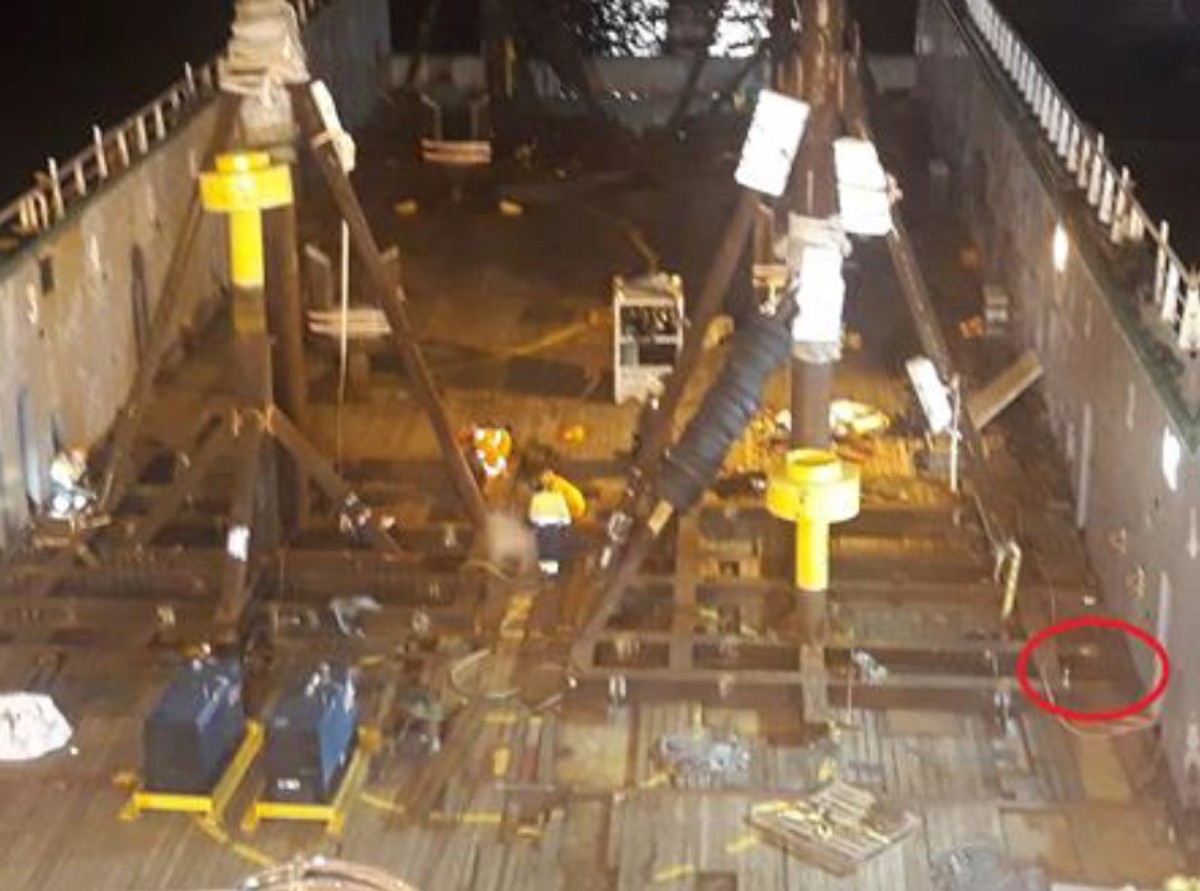Small fire following hot work
- Safety Flash
- Published on 18 January 2023
- Generated on 14 February 2026
- IMCA SF 03/23
- 2 minute read
Jump to:
On a Member’s vessel alongside, a small fire broke out following hot work conducted by the Client’s welding sub-contractors
What happened?
The incident occurred during the welding of jumper stands on the main deck. After completing their work, the welders left the vessel without notifying the bridge, and the Permit to Work was closed.
Shortly thereafter, an AB discovered smoke coming from a rag left over the welded area. The small fire was extinguished with a bucket of water.
There was no damage to equipment, no consequences, and no-one was harmed.

smouldering rag was found at place marked by red ring
What went wrong?
- There was inadequate communication between the third-party welders and the vessel crew.
- There was no joint inspection (by vessel crew and third-party welders) of the work before the welders left the vessel and the Permit to Work was closed.
- There was no fire watch.
What went right?
- There was a Permit to Work for the operation.
- The small fire was discovered by an observant AB and was easily extinguished.
Lessons learned
- Closer liaison with third-party contractors to ensure understanding of requirements for:
- monitoring of work
- opening and closing of Permits to Work.
- monitoring of work
- Ensure joint inspection and agreed acceptance of work done by third-party contractors before allowing them to leave or closing Permits to Work.
- Ensure fire watches are set.
Related safety flashes
-
IMCA SF 10/21
8 April 2021
-
-
IMCA SF 25/19
28 October 2019
-
-
IMCA SF 02/10
8 April 2010
IMCA Safety Flashes summarise key safety matters and incidents, allowing lessons to be more easily learnt for the benefit of the entire offshore industry.
The effectiveness of the IMCA Safety Flash system depends on the industry sharing information and so avoiding repeat incidents. Incidents are classified according to IOGP's Life Saving Rules.
All information is anonymised or sanitised, as appropriate, and warnings for graphic content included where possible.
IMCA makes every effort to ensure both the accuracy and reliability of the information shared, but is not be liable for any guidance and/or recommendation and/or statement herein contained.
The information contained in this document does not fulfil or replace any individual's or Member's legal, regulatory or other duties or obligations in respect of their operations. Individuals and Members remain solely responsible for the safe, lawful and proper conduct of their operations.
Share your safety incidents with IMCA online. Sign-up to receive Safety Flashes straight to your email.